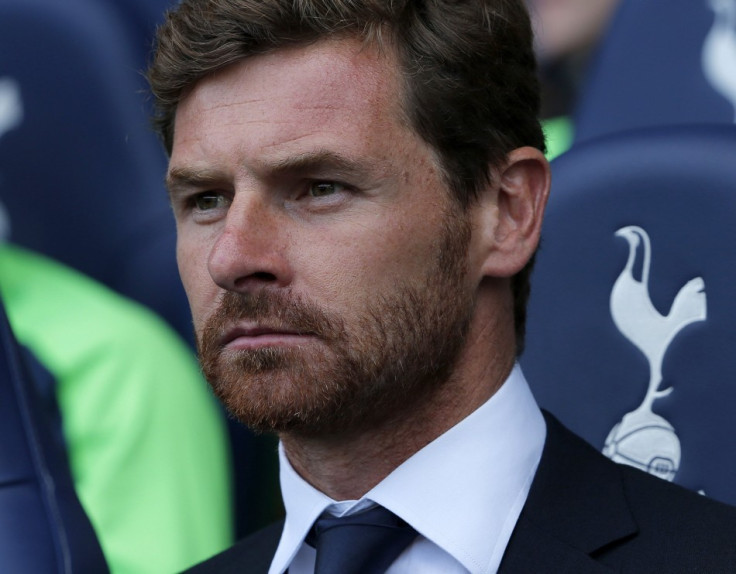Andre Villas-Boas Leaves Tottenham: Five Things AVB Got Wrong

Andre Villas-Boas has parted ways with Tottenham Hotspur, just seven months after guiding the club to their best-ever points tally in his debut season at White Hart nLane.
Unfortunately for Villas-Boas, the 72 points his team garnered last season were not enough to secure Champions League qualification, as Arsenal snuck up to pip their local rivals to fourth spot. Now the former Chelsea manager's career lies in ruins, after a second high-profile sacking in two years.
How did it all go so wrong? At the start of the season, many pundits tipped Spurs as an outside bet for the title. Although they had lost Gareth Bale, their star player, Tottenham used the money to sign seven new players including established stars Christian Eriksen, Erik Lamela and Roberto Soldado. A new dawn appeared on the horizon for the north London club.
But the season began to unwravel quickly and painfully. Spurs were thumped 3-0 by West Ham, 6-0 by Manchester City and 5-0 by Liverpool in the match which triggered Villas-Boas's departure. Goals proved elusive and tactics appeared muddled as the new signings struggled desperately to find a winning groove. Although there were some bright spots, notably the two victories at Aston Villa and the battling draws with Chelsea and Everton, they weren't enough to keep the young manager in his job.
There were many factors in Villas-Boas's fall from grace at White Hart Lane, but here are five of the most crucial.
1)Summer Transfer Policy : Signing so many new players was always likely to bring transition and instability, as Villas-Boas mixed and matched his new squad in an attempt to explore all possible permutations. Tottenham never settled down following the summer break, and it sometimes appeared Villas-Boas had too many options; faced with so many quality players, he constantly had to rotate his team to keep them all happy.
Arsene Wenger nailed the problem earlier in the year when he said: "In our job, there is a technical risk when you buy more than three players always because you unbalance a little bit the stability of your squad. I know that in England it's very well seen but it's always difficult when you bring so many players in, how everybody will do to predict that."
2)Gareth Bale's Transfer : As Arsenal have found out over the past couple of years, selling your best players rarely has a positive impact on the following season, no matter who you buy to replace them.
The Gunners lost the likes of Cesc Fabregas and Samir Nasri in 2011 and suffered their worst ever defeat at Old Trafford where they were mauled 8-2 within weeks of the double departure. The following season they lost their leading goal scorer, Robin van Persie, and got off to another nightmare start. Without Wenger's experience, it's unlikely Arsenal would have made the Champions League in either season - and Villas-Boas, at 36, could never have matched the Frenchman's nous.
3)Franco Baldini: Baldini's appointment as Director of Football was met with plenty of optimism, especially when Spurs were buying players left right and centre while the likes of Arsenal were a shambles in the transfer market last summer. However, it seems Villas-Boas was never in charge of transfers; certainly the transfer of Lamela, who worked closely with Baldini at Roma, suggests the man upstairs was the one handling player signings at White Hart Lane. Given the often naive and baffling tactics Villas-Boas mapped out for his team, it appears he didn't fully understand his player's strengths and weaknesses, which in turn suggests someone else had their hands on Tottenham's transfer tiller over the summer.
4)Tactics: AVB's tactics drew a lot of flak during his time at Chelsea, particularly when he lost 5-3 to Arsenal at Stamford Bridge. His determination to hold a high line brought him further problems at Tottenham, never more so than in his final match against Liverpool, when Michael Dawson and Etienne Capoue were ruthlessly exposed by Liverpool's lightning-quick counter-attacks. Rodgers said in his post match press conference that it was this very tactic that the visitors were trying to exploit.
5)Relationship with the Media: AVB openly criticised Neil Ashton, a reporter from the Daily Mail, in a press conference after the latter had ridiculed the Portuguese manager by stating that anyone could have had the sort of success he enjoyed with Porto. Villas-Boas did not take the criticism likely and lashed out at the press for targeting his humanity, his professionalism and his values. Relations deteriorated from there, and the media naturally did all it could to portray Villas-Boas in a negative light.
Perhaps success came too soon for Andre Villas-Boas. At an age when most of the football fraternity are still playing, the urbane Portuguese was carving up domestic and European competitions. Perhaps he now needs to return to his old Portuguese stomping ground; a different league, a different environment with less pressure may allow him some time to think over his system and become a better manager and a wiser man.
© Copyright IBTimes 2025. All rights reserved.






















